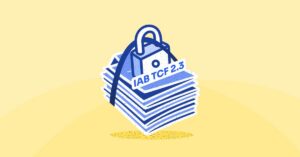Introduction
Safeguarding personal information is now of utmost importance. The California Consumer Privacy Act (CCPA) stands as a testament to this priority, aiming to safeguard the personal data of California residents. Non-compliance with the CCPA can lead to significant penalties, both financial and reputational. This article delves into the intricacies of the CCPA, outlining its requirements, the consequences of non-compliance, and strategies businesses can employ to ensure adherence.
What is the CCPA and Its Purpose?
The California Consumer Privacy Act (CCPA) is a comprehensive data privacy regulation enacted to protect the personal information of California residents. Its primary objective is to enhance privacy rights and consumer protection by granting individuals greater control over their personal data. The CCPA promotes transparency, accountability, and consumer control, ensuring that businesses handle personal information responsibly. It applies to for-profit entities that meet specific criteria, including certain thresholds related to annual revenue and data collection practices.
Who Does the CCPA Apply To?
The CCPA targets for-profit businesses operating in California that meet at least one of the following criteria:
Annual Revenue: Exceeding $25 million.
Data Collection: Annually buying, receiving, selling, or sharing the personal information of 50,000 or more California residents, households, or devices.
Revenue from Data Sales: Deriving 50% or more of their annual revenue from selling California residents’ personal information.
It’s noteworthy that the CCPA’s reach isn’t confined to businesses physically located within California. Any company regardless of its geographic location, that collects or processes the personal information of California residents and meets the above criteria is subject to the CCPA’s mandates.
What Are the Consumer Rights Under the CCPA?
The CCPA endows California residents with several pivotal rights concerning their personal information:
Right to Know: Consumers can request details about the categories and specific pieces of personal information a business has collected about them.
Right to Erase: Users have the right to ask for the removal of their personal data retained by a company, with some exceptions allowed.
Right to Opt-Out: Consumers have the right to direct a business, not to sell their personal information.
Right to Non-Discrimination: Consumers are protected from discriminatory practices by businesses when they exercise their CCPA rights.
These rights empower consumers, granting them greater autonomy over their personal data and how it’s utilized by businesses.
CCPA Compliance Requirements
Understanding CCPA compliance requirements is essential for organizations, as non-compliance can result in significant penalties and damage to reputation. Key requirements include providing clear disclosures about data collection practices, allowing consumers to opt-out of their data being sold, ensuring consumers can access their personal information, and implementing robust security measures to protect customer data.
Data Minimization and Purpose Limitation:
Collection Limitation: Businesses should collect only the personal information necessary to fulfill the specific purposes disclosed to consumers.
Purpose Specification: Personal information should not be used for purposes incompatible with those initially disclosed, ensuring alignment with consumer expectations.
Transparency and Consumer Requests:
Clear Notices: Businesses must provide transparent and conspicuous notices detailing their data collection and processing practices.
Timely Responses: Upon receiving consumer requests related to their data, including CCPA requests, businesses are obligated to respond within 45 days, facilitating consumer rights effectively.
Security Safeguards and Data Protection:
Establish Security Protocols: Companies must create adequate security measures to safeguard personal data from unauthorized access, theft, or disclosure.
Regular Assessments: Conducting periodic assessments helps identify and mitigate potential risks associated with data processing activities.
By integrating these practices, businesses can align with CCPA mandates and foster trust with consumers.
Security Safeguards and Impact Assessments
Implementing robust security safeguards is crucial to prevent data breaches and ensure CCPA compliance. Businesses must establish and maintain reasonable security procedures and practices to protect consumer data. This includes:
Encrypting Personal Data: Encryption ensures that even if data is accessed without authorization, it remains unreadable and secure.
Implementing Strong Passwords and Multi-Factor Authentication: These measures add layers of security, making unauthorized access more difficult.
Conducting Regular Security Audits and Risk Assessments: Regular evaluations help identify vulnerabilities and ensure that security measures are up-to-date.
Training Employees on Cybersecurity Best Practices: Educating staff on how to handle data securely and recognize potential threats is essential.
Implementing Incident Response Plans: Having a plan in place to respond to data breaches quickly can mitigate damage and ensure compliance with CCPA regulations.
Conducting regular Data Protection Impact Assessments (DPIAs) is also essential to identify and mitigate potential risks associated with data processing. DPIAs help businesses to:
Identify Potential Risks and Vulnerabilities: Understanding where risks lie allows for proactive measures.
Assess the Likelihood and Impact of Data Breaches: Evaluating the potential consequences of breaches helps prioritize security efforts.
Develop Strategies to Mitigate Risks and Prevent Data Breaches: Implementing targeted measures to address identified risks enhances overall security.
Ensure Compliance with CCPA Regulations: Regular assessments ensure that security practices align with regulatory requirements.
Types of CCPA Violations
Violations of the CCPA can arise from various actions or inactions:
Data Breaches: Failing to implement reasonable security measures can lead to unauthorized access to personal information, constituting a violation.
Inadequate Privacy Notices: Not providing clear disclosures about data collection and usage practices breaches transparency obligations.
Ignoring Consumer Requests: Failing to respond to consumer requests regarding their personal information within the stipulated timeframe is a direct violation.
A CCPA violation can lead to legal implications, particularly if businesses fail to address issues within the 30-day notice period.
Understanding these potential pitfalls is crucial for businesses aiming to maintain compliance and avoid associated penalties.
CCPA Fine Structure and Amounts
The CCPA delineates specific penalties for non-compliance:
Unintentional Violations: Civil penalties of up to $2,500 per violation can be imposed.
Intentional Violations: Fines can escalate to $7,500 per violation for deliberate non-compliance.
It’s essential to recognize that these fines apply per violation. Consequently, multiple infractions can accumulate substantial financial penalties, underscoring the importance of comprehensive compliance efforts.
Notice and Cure Period
Before initiating enforcement actions, the CCPA requires that businesses be given an opportunity to rectify alleged violations:
30-day Notice: The California Attorney General must notify businesses of any alleged violations, providing them with a 30-day window to address and correct the issues. If the violation is deemed an intentional violation, the fines can be significantly higher, up to $7,500 per violation.
Opportunity to Cure: If the business remedies the violation within this period and provides a written statement confirming the correction, it can avoid statutory penalties.
This provision emphasizes the CCPA’s preference for corrective action over punitive measures, encouraging businesses to proactively address compliance shortcomings.
How Does CCPA Enforcement Work?
The California Privacy Protection Agency (CPPA) operates alongside the California Attorney General to ensure that businesses adhere to the CCPA’s standards. This agency was created specifically to monitor and enforce privacy regulations, highlighting the state’s commitment to protecting consumer data.
Enforcement actions may include:
Civil Penalties: Imposed for both unintentional and intentional violations of the CCPA.
Injunctions: Orders to prevent businesses from continuing non-compliant practices.
Private Right of Action: Enables consumers to sue businesses for violations, particularly in the case of data breaches involving unredacted and unencrypted data.
Both entities have the authority to demand compliance and take appropriate measures against businesses failing to meet the CCPA’s requirements.
CCPA Private Right of Action and Class Action Lawsuits
The private right of action is a crucial aspect of the CCPA that empowers individuals to sue businesses for specific violations. Most notably, this right applies to data breaches involving unencrypted and unredacted personal information.
Key Details of Private Right of Action:
Damages: Consumers can claim between $100 and $750 per incident or actual damages, whichever is greater.
Injunctions: Courts may order businesses to implement better security practices.
Class Action Lawsuits:
When violations impact a large number of individuals, they can file a class action lawsuit. Such cases amplify the financial and reputational risks for businesses as damages and penalties multiply with the number of affected consumers.
Responding to Consumer Requests
Businesses must be adequately equipped to handle data subject requests in an efficient and timely manner. These requests can encompass a range of demands, including the right to access personal information, the right to deletion of data, and various opt-out demands from marketing communications or data processing activities. Ensuring consumer access to their personal data is a critical aspect of CCPA compliance.
Access and Deletion Requests
Establish comprehensive and transparent mechanisms that enable consumers to easily access, review, and delete their personal information when they request it. This process should be simple and straightforward, ensuring that consumers feel empowered to manage their own data effectively. Additionally, it is important to respond to such requests within a time frame of 45 days. In cases where the requests are particularly complex and require more time to resolve, there should be the possibility to extend this deadline by an additional 45 days.
Opt-Out Mechanisms
It is essential to ensure transparency and compliance with consumer rights legislation by prominently displaying a link or banner labeled “Do Not Sell My Personal Information” on your website. This measure should be easily accessible to all visitors, allowing them to make informed decisions regarding their personal data. Furthermore, it is crucial to implement policies that guarantee non-discrimination against consumers who choose to exercise their rights under these laws. This includes refraining from refusing service to customers who opt out of data selling or charging them higher prices based solely on their decision to protect their personal information. Upholding these principles fosters a trustworthy relationship between your business and its customers while adhering to legal obligations.
Failing to respond to requests appropriately can lead to complaints, investigations, and potential penalties.
Achieving CCPA Compliance
Achieving CCPA compliance requires a comprehensive approach that involves understanding the regulations, implementing necessary measures, and maintaining ongoing compliance. Here are some steps to achieve CCPA compliance:
Conduct a Data Inventory and Mapping: Identify all personal data collected, processed, and stored by the business. This helps in understanding the data flow and ensuring all data handling practices comply with CCPA regulations.
Develop a Data Subject Access Request (DSAR) Process: Establish a clear process to respond to consumer requests for access to their personal information. This includes setting up systems to handle requests efficiently and within the required timeframe.
Implement Data Minimization and Data Retention Policies: Limit the collection of personal data to what is necessary and establish policies for retaining data only as long as needed. This reduces the risk of data breaches and ensures compliance with CCPA’s data minimization principles.
Develop a Data Breach Response Plan: Prepare a plan to respond to data breaches promptly. This includes identifying the breach, containing it, notifying affected individuals, and taking steps to prevent future breaches.
Train Employees on CCPA Compliance and Data Protection Best Practices: Regular training ensures that all employees understand their roles in protecting consumer data and complying with CCPA regulations.
Regularly Review and Update Privacy Policies and Notices: Ensure that all privacy policies and notices are up-to-date and reflect current data handling practices. This helps maintain transparency and compliance with CCPA requirements.
Automating CCPA Compliance
Automating CCPA compliance can help businesses streamline their compliance processes, reduce the risk of human error, and improve efficiency. Some ways to automate CCPA compliance include:
Implementing Data Mapping and Inventory Tools: These tools help identify and track personal data across the organization, ensuring that all data handling practices are compliant with CCPA regulations.
Using Automated DSAR Tools: Automated tools can handle consumer requests for access to their personal information, ensuring timely and accurate responses.
Implementing Data Breach Detection and Response Tools: These tools help detect data breaches quickly and respond effectively, minimizing the impact and ensuring compliance with CCPA’s breach notification requirements.
Using Compliance Management Software: This software can track and manage all aspects of CCPA compliance, from data inventory to consumer requests, ensuring that all regulatory requirements are met.
Implementing Automated Privacy Policy and Notice Updates: Automated systems can ensure that privacy policies and notices are always up-to-date, reflecting any changes in data handling practices or regulatory requirements.
By automating CCPA compliance, businesses can reduce the risk of non-compliance, improve efficiency, and maintain ongoing compliance with CCPA regulations.
The Cost of Non-Compliance and Stacked Violations
The cumulative effect of non-compliance can be devastating for businesses, affecting not only their reputation but also their financial stability. Even multiple violations that seem minor at first can accumulate over time and lead to exorbitant fines that are difficult for many companies to absorb without significant impact. It is crucial for businesses to understand the importance of adhering to regulations to avoid such detrimental consequences. Here are some examples of stacked violations:
Ignoring consumer requests across multiple platforms.
Repeated data breaches due to inadequate security measures.
The California Consumer Privacy Act (CCPA) serves as a crucial regulatory framework that incentivizes businesses to address any potential violations of consumer privacy regulations in a swift and effective manner. This legislation highlights the increasing importance of having a robust compliance framework in place, which not only ensures that companies adhere to the legal standards set forth but also fosters trust and transparency between businesses and consumers. In an age where consumer data protection is paramount, businesses are urged to prioritize the establishment of comprehensive measures to safeguard personal information, thereby reinforcing their commitment to ethical practices in data handling and privacy management.
Conclusion
The California Consumer Privacy Act (CCPA) represents a significant shift in how businesses must manage personal information. By prioritizing transparency, accountability, and consumer control, the CCPA seeks to protect California residents’ privacy rights.
Key Takeaways:
Non-compliance with the CCPA can result in severe financial penalties, reputational harm, and legal actions.
Businesses must implement reasonable security procedures, fulfill consumer rights requests, and adhere to transparency requirements.
Proactively aligning with CCPA regulations not only avoids penalties but also builds consumer trust and long-term success.
Adopting a CCPA-compliant privacy policy and leveraging consent management platforms are crucial steps toward ensuring compliance. For-profit businesses, especially those handling sensitive personal data, must prioritize adherence to the CCPA’s provisions to avoid costly consequences.



